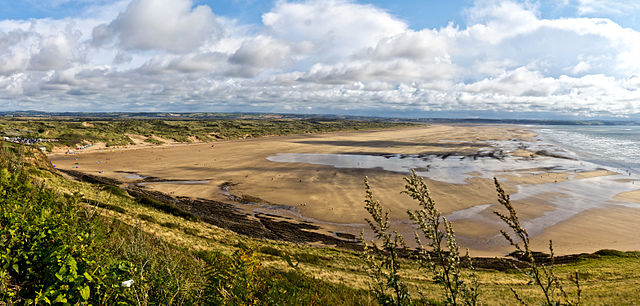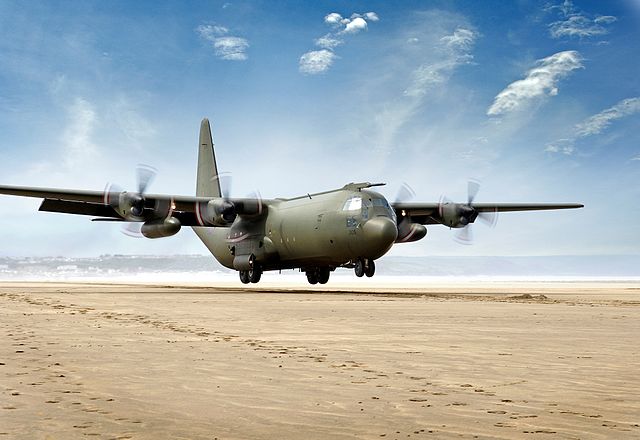Saunton Sands
Saunton Sands is a beach near the English village of Saunton on the North Devon coast near Braunton, popular for longboard surfing. Beyond its southern end, Crow Point, England is the mouth of the River Taw estuary. It is part of the Taw-Torridge estuary Area of Outstanding Natural Beauty and is at the centre of the UNESCO-designated North Devon's Biosphere Reserve, where Braunton Burrows lies at the heart.
Saunton Sands Hotel overlooks the beach at the northern end. The beach is cordoned off a few times a year and the beach used as an airstrip for military transport planes, usually Lockheed C-130 Hercules of the Royal Air Force, to practice STOL beach landings and take offs. Flying kites is prohibited, accordingly, on part of the beach.Saunton Sands is popular with surfers because the beach is long, an unusually exposed westerly, and provides space for large groups. The beach has no life guards and is known to have dangerous riptides. Swimming here is dangerous and has resulted in many coast guard call outs.
On 3 August 1990, a temperature of 35.4 °C (95.7 °F) was recorded at Saunton Sands, which is the highest temperature recorded in the Devon and Cornwall region.
Links
Images Gallery
-

-
Saunton Sands
-
 A RAF C-130K Hercules landing at Saunton Sands
A RAF C-130K Hercules landing at Saunton Sands
Comments
Share your experience with others and write the first comment about the location


